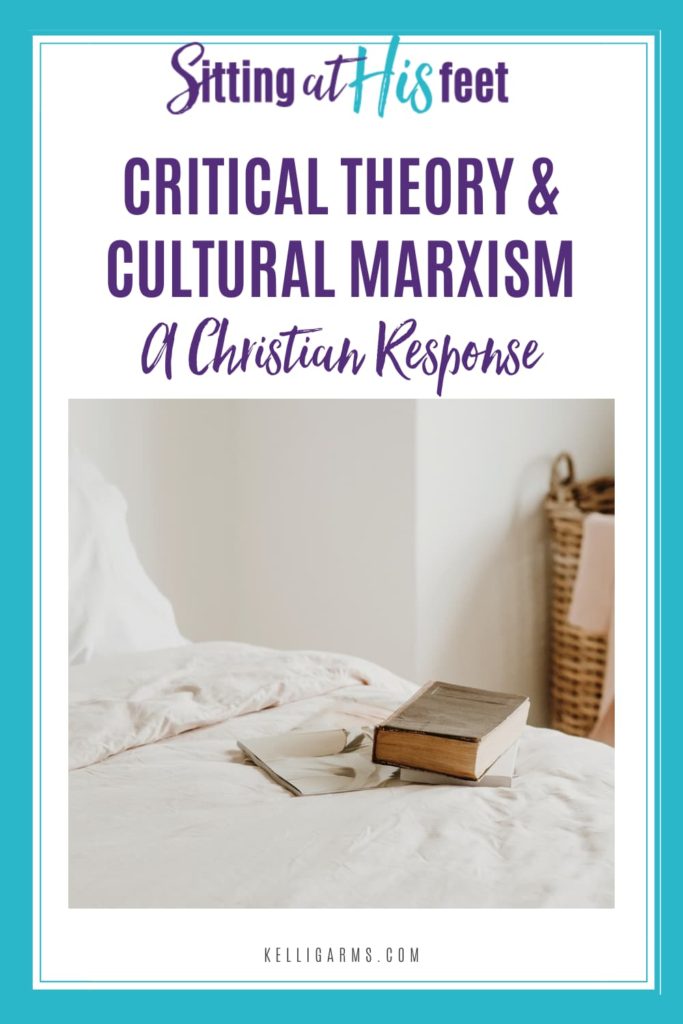Disclaimer: I am not an expert on this critical theory and cultural marxism. I have pieced together what I know from sources who are experts, and I will refer you to them in this post.
Critical Theory
I was first introduced to the idea of critical theory when I was in college. As a literature major, one of the main topics in all of my classes was Literary Criticism and Theory. And if you took a literature class at any point in your college career, you were exposed to this idea, too. Literary criticism is the lens through which you see the piece of literature.
There are many different types of literary criticism. You could use feminist criticism in which you look at how women are treated in the piece of literature. You could also apply Marxist criticism, which looks at the economic status of the characters. Another option is historical criticism, where you look at the historical context of the piece and what it says about the culture as a whole, and the list goes on and on.
Critical theory is similar to literary criticism in that it is the lens through which you see the world around you. It is not limited to literature but colors how you interpret everything and everyone with whom you come into contact. It is a worldview.
The major difference between literary criticism and critical theory is that literary criticism leaves room for accurate interpretation whereas critical theory must find an oppressor and an oppressed. In other words, critical theory doesn’t look for a truthful portrayal of events, but it looks for how one person is being oppressed by another person. And if there is no real oppression, critical theory invents it.
If you are applying critical feminist theory, you are looking for how women are being oppressed by others, not how women are actually being treated. We see this play out when we look at the wage gap between men and women. Critical theory doesn’t take into account choices that men and women make in their careers that affect the difference in pay.
If you are applying critical race theory, you are looking at how minorities are oppressed by others, not how minorities are actually being treated, or what benefits come with being in the minority. We have seen this play out recently with claims that the police target members of minorities even though the data says otherwise.

The same goes for critical Marxist theory, which looks at how a lower economic class is oppressed by a wealthier class without taking into consideration the programs provided to the lower classes, which include such things as tax breaks, free and reduced lunches in public school, food stamps, etc. And there are many other types of critical theory.
Cultural Marxism
Critical theory is what has given a voice to marxism in the United States. Traditional Marxism is based on economic principles, but if you follow it through to its logical conclusion, it is actually based on power. Whoever has the money has the power, so marxism is about power, not economics. When you reframe it that way, it is easy to see that marxism can take many different avenues as entry points into a culture.
In America, a capitalist country, it was difficult to convince people that standing in a bread line was not only acceptable but also desirable. After all, we are the great American experiment and many have achieved the American dream. So an attack on the economic front didn’t work.
As a result, Marxism began looking for other points of disparity in our country. Marxists set out to convince women, minorities, and homosexuals that they are oppressed and took advantage of every opportunity to “prove” it. And unfortunately, the media only reports on events or incidents that appear to demonstrate the oppression.
Because there is always an oppressor and an oppressed, there can never be unity. Critical theory seeks to topple whoever is in power and replace them with a different group, who will then also need to be toppled and replaced. It is a never-ending cycle.
Not only does critical theory undermine the very fabric of our nation, but also it gives a platform for victimhood. Because there is always an oppressor and an oppressed, the “oppressed” feel empowered to lean into their victimhood. This idea will be discussed more in a future blog post.
Christian Response
As Christians, how do we combat the ever-growing popularity of critical theory? Because it is a worldview, the only way to confront it is with a biblical worldview. It can only be confronted with the truth. Critical theory is a worldview that does not hold up to the scrutiny of Scripture.
Scripture tells us that there is only one race, the human race. It also tells us to love God and love people (in fact, this is basically the theme of the entire Bible). If we do this well, there will be no oppression, we will see individuals as image-bearers of God and not as members of a group, and we will love people enough to guide them through a spiritual transformation instead of judging them for their choices.
As Christians, it is so important for us to spend time in the Word of God so we have the weapons we need to fight these lies from the enemy. If you struggle to study the Bible, I invite you to download my free workbook, 6 Steps to Study the Bible on Your Own. Just enter your information below to receive the workbook in your inbox.
[activecampaign form=13]
Resources
I know this is a brief introduction to this topic, and I encourage you to do some research on your own. Here are a few resources to get you started:






0 Comments